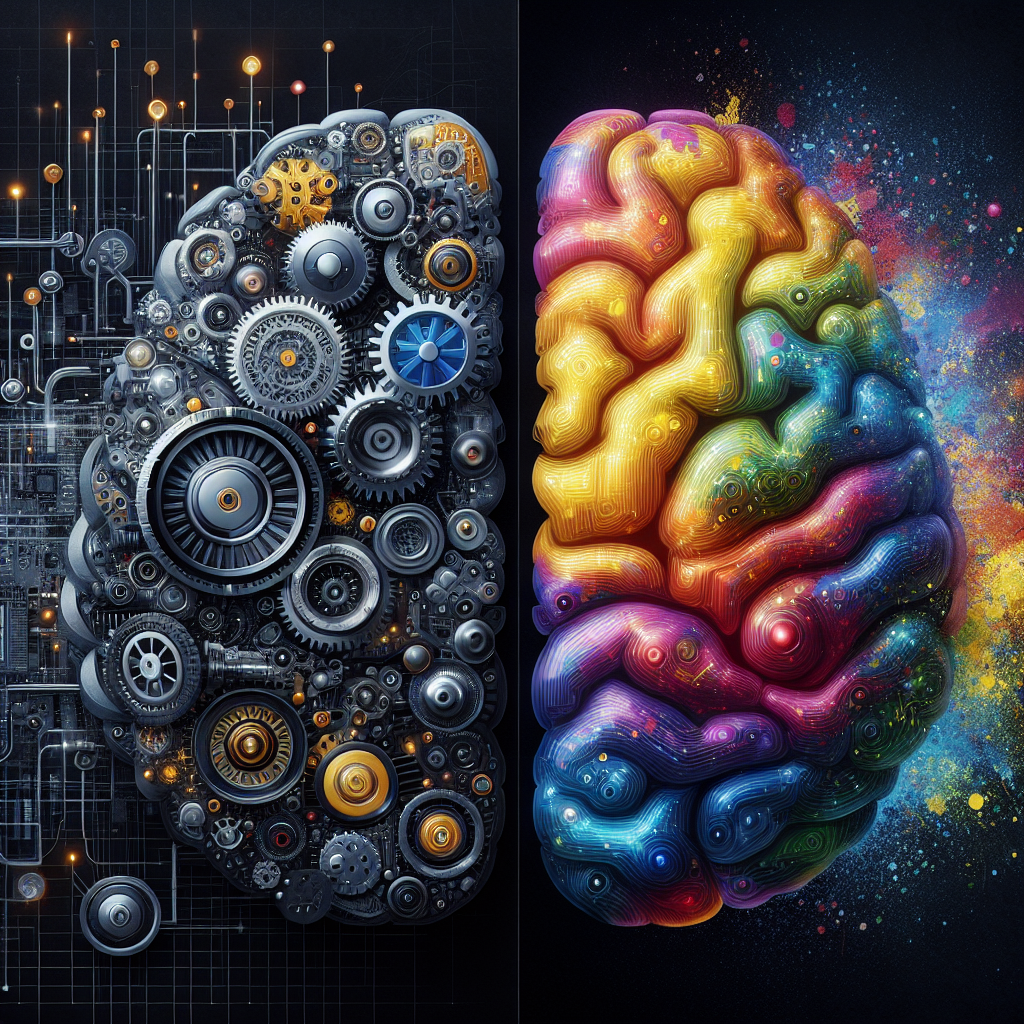Artificial General Intelligence (AGI) and human intelligence are two vastly different forms of intelligence, each with their own unique characteristics and capabilities. While AGI strives to replicate human-like intelligence in machines, there are several key differences that set them apart. In this article, we will explore the differences between AGI and human intelligence, as well as the implications of these differences for the future of AI technology.
AGI vs. Human Intelligence: What Sets Them Apart?
1. Cognitive Abilities
One of the key differences between AGI and human intelligence lies in their cognitive abilities. Human intelligence is characterized by complex cognitive processes such as reasoning, problem-solving, and creativity. Humans possess the ability to think abstractly, make decisions based on incomplete information, and adapt to new situations. AGI, on the other hand, is designed to perform specific tasks or solve particular problems within a defined domain. While AGI systems can be trained to perform complex tasks, they lack the broad cognitive abilities of human intelligence.
2. Emotional Intelligence
Another significant difference between AGI and human intelligence is emotional intelligence. Humans possess the ability to understand and express emotions, as well as to empathize with others. Emotional intelligence plays a crucial role in human interactions, decision-making, and problem-solving. AGI systems, on the other hand, do not have emotions or the ability to understand them. While some AI systems can be programmed to recognize and respond to emotions, they do not experience emotions in the same way that humans do.
3. Learning and Adaptation
Human intelligence is characterized by its ability to learn from experience and adapt to new situations. Humans can acquire new knowledge, skills, and behaviors through observation, practice, and feedback. This ability to learn and adapt is what enables humans to navigate complex and unpredictable environments. AGI systems, on the other hand, are limited by their programming and training data. While AGI systems can be trained to perform specific tasks or solve particular problems, they lack the ability to learn and adapt in the same way that humans do.
4. Consciousness
One of the most profound differences between AGI and human intelligence is the concept of consciousness. Humans are conscious beings, capable of self-awareness, introspection, and subjective experience. Consciousness is the foundation of human identity, perception, and cognition. AGI systems, on the other hand, do not possess consciousness. While AGI systems can simulate human-like behaviors and responses, they do not have an inner subjective experience or sense of self.
5. Ethical and Moral Reasoning
Human intelligence is also characterized by its ethical and moral reasoning capabilities. Humans have a sense of right and wrong, as well as the ability to make ethical decisions based on values, principles, and empathy. Ethical and moral reasoning play a crucial role in human decision-making, behavior, and social interactions. AGI systems, on the other hand, do not have inherent ethical or moral values. While AGI systems can be programmed to follow ethical guidelines or rules, they lack the capacity for complex ethical reasoning and decision-making.
Implications for the Future
The differences between AGI and human intelligence have significant implications for the future of AI technology. As AI systems become more advanced and capable, it is essential to consider the ethical, social, and philosophical implications of creating machines that mimic human intelligence. AGI systems raise questions about the nature of consciousness, the boundaries of artificial intelligence, and the implications of creating intelligent machines.
FAQs
Q: Can AGI ever surpass human intelligence?
A: While AGI systems have the potential to perform specific tasks or solve particular problems better than humans, they are unlikely to surpass human intelligence in terms of overall cognitive abilities, emotional intelligence, and consciousness.
Q: How can AGI be used in real-world applications?
A: AGI systems can be used in a wide range of real-world applications, including healthcare, finance, transportation, and entertainment. AGI systems can perform tasks such as medical diagnosis, financial analysis, autonomous driving, and natural language processing.
Q: What are the ethical implications of AGI?
A: The development of AGI raises ethical concerns about privacy, security, bias, and job displacement. It is essential to consider the ethical implications of creating intelligent machines that may have unintended consequences for society.
In conclusion, AGI and human intelligence are two distinct forms of intelligence with unique characteristics and capabilities. While AGI systems have the potential to perform specific tasks or solve particular problems better than humans, they lack the broad cognitive abilities, emotional intelligence, consciousness, and ethical reasoning of human intelligence. As AI technology continues to advance, it is essential to consider the implications of creating machines that mimic human intelligence.

